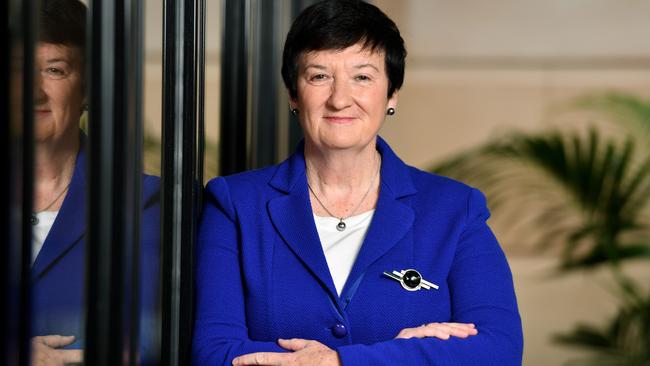Business leaders tell Coalition: back NEG
Business groups will present a united front to Coalition backbench opponents of the National Energy Guarantee.

Business groups will present a united front to Coalition backbench opponents of the government’s National Energy Guarantee this week, urging them to take politics out of the debate and stop advocating for specific technologies so that the policy can be put in place.
In an effort to close a damaging rift within the government, including threats by backbencher Tony Abbott to cross the floor, Energy Minister Josh Frydenberg has assembled a group, with representatives from the mining, agriculture and manufacturing sectors, to make the case for the NEG.
The business leaders, who will brief Coalition MPs tomorrow, said they did not want to see the policy held up by pro-coal elements of the party and were happy to see a “technology-agnostic” policy.
Business Council of Australia chief executive Jennifer Westacott said business was “crying out” for policy certainty.
“The guarantee can be a circuit-breaker for the stale energy debate that has paralysed investment in new generation,” Ms Westacott said.
“It can give people the confidence they need to invest and build new generation capacity.
“The nation simply can’t afford another period of policy paralysis. Denying consumers the opportunity for reliable, affordable energy is unacceptable.”
The NEG is the latest effort after a series of previous attempts to marry environmental and energy policy that were abandoned after opposition from pro-coal and anti-emissions-trading forces in the government. But it has faced significant opposition from groups concerned that the inclusion of the Paris emissions reduction targets of 26 per cent below 2005 levels would not allow for new coal-fired power stations to be built.
While business groups say they have some concerns about the design of the NEG, they were not significant enough to stop it being put to the states in August and implemented across the national energy market.
BHP president of operations Mike Henry said the miner, which purchased more than half of its $680 million of energy last financial year from the east coast’s National Energy Market, would share with the backbench its own modelling of the policy, which has come out in favour of the NEG.
“We are strongly supportive of the NEG,” Mr Henry said.
“We do not support the status quo.”
Mr Henry said the company was technology-agnostic, meaning it did not want to advocate for one technology or another and would let the requirements of the policy decide the most appropriate generation mix.
“We don’t have a particularly strong view of what power source is needed — we believe the market should sort that out,” he said.
“It will give you the right mix of affordability. When you try to prioritise one source of generation over another it distorts the market and stops you achieving that balance.”
Minerals Council of Australia chairman Vanessa Guthrie agreed that one technology should not get in the way of the overall policy.
“Our view is that the NEG should do this — it would set the criteria and then it is about how you set about meeting those criteria.”
Ms Guthrie is one of six business leaders to speak to the backbench committee on energy, which is chaired by outspoken NSW Liberal Craig Kelly.
Others include Ai Group chief executive Innes Willox, Ms Westacott, BlueScope steel chief executive Mark Vasella, National Farmers Federation president Fiona Simpson and BHP chief commercial officer Arnoud Valhuizen.
The business lobbying effort follows the release nearly two weeks ago of the design details of the NEG, which includes large fines for retailers and businesses who fail to meet targets for reliability, affordability and emission reductions.
The policy will also require the country’s 100 biggest energy users — facilities with a peak load of 5MW or more — to ensure the reliability of their power supply by contracting energy generation that “firms” the increasing amounts of intermittent renewable energy coming into the system, or agree to dial down their usage in times when the national energy market was in stress.
The energy Security Board, which designed the policy, said those companies would be able to “opt-out” of the reliability standard by contracting it to an energy retailer, and that the requirement would strengthen businesses’ hands in negotiating with those suppliers.
But business groups said they would prefer to see the reliability requirement for large users changed to an “opt-in” system.
NFF president Fiona Simpson said that while the agricultural industry was a “broad church” and a major energy user, it had agreed on affordability, reliability and emission reductions as its policy priorities. “Our message is pretty simple — we want some policy certainty,” Ms Simpson said.
“While the NEG is not perfect, for us it is the best game in town and we would like to keep the politics out of it.”

To join the conversation, please log in. Don't have an account? Register
Join the conversation, you are commenting as Logout